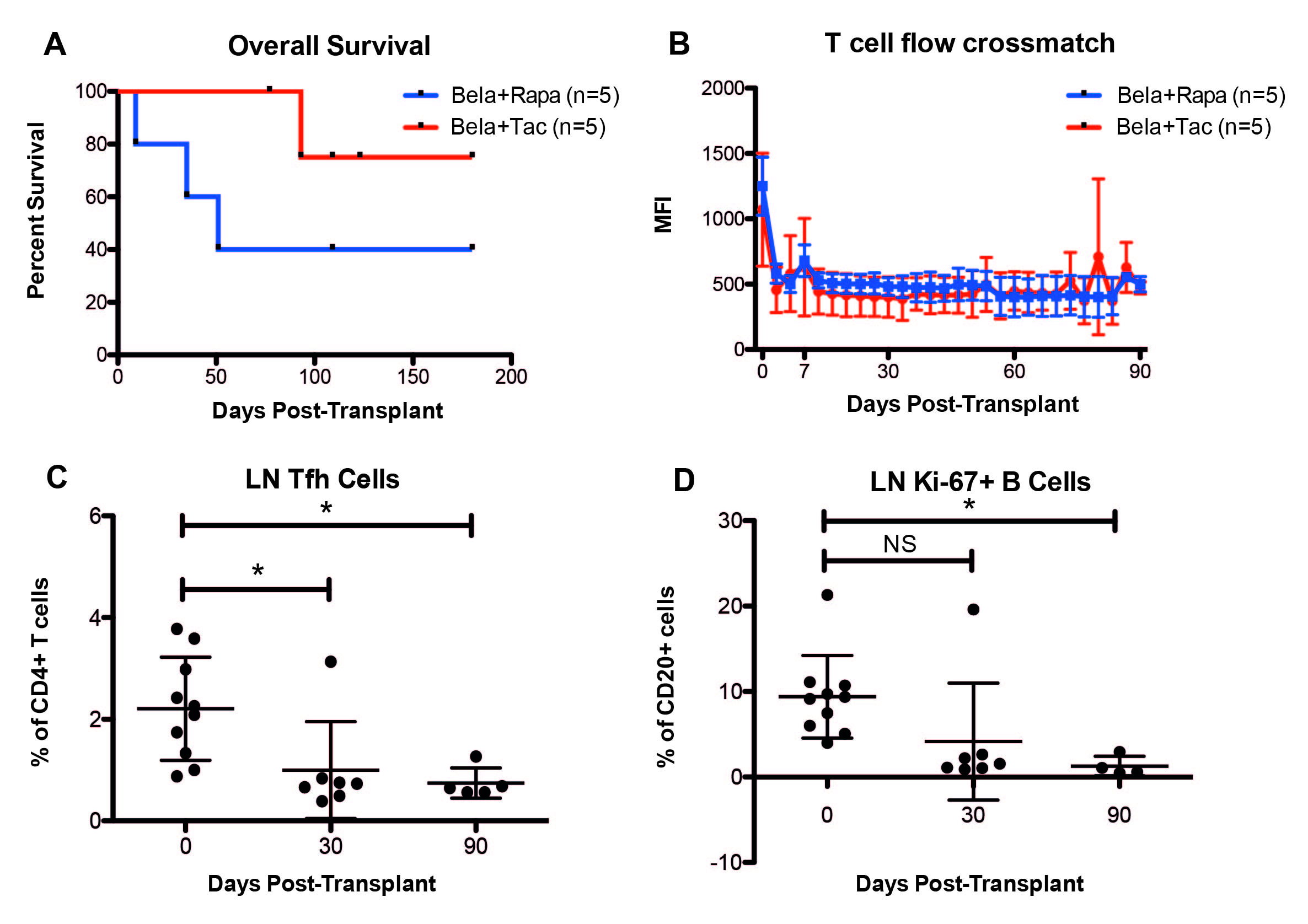Costimulation Blockade-Based Maintenance Immunosuppression in a Sensitized Nonhuman Primate Kidney Allotransplantation Model
Department of Surgery, Duke University Medical Center, Durham, NC
Meeting: 2020 American Transplant Congress
Abstract number: 319
Keywords: Alloantibodies, Lymph node, Rejection, Sensitization
Session Information
Session Name: Immunosuppression Preclinical Studies
Session Type: Oral Abstract Session
Date: Saturday, May 30, 2020
Session Time: 3:15pm-4:45pm
 Presentation Time: 4:27pm-4:39pm
Presentation Time: 4:27pm-4:39pm
Location: Virtual
*Purpose: Sensitized transplant recipients represent a challenging population in part due to the presence of donor-specific antibodies (DSA), which increase the risk of antibody-mediated rejection. Desensitization with costimulation blockade and proteasome inhibition has shown potential in facilitating transplantation in such recipients. However, long-term graft survival is limited due to rebound of DSA. We hypothesized that a costimulation blockade-based maintenance immunosuppression would control the humoral immune response and enable long-term graft survival.
*Methods: Ten (10) rhesus macaques were sensitized to maximally MHC mismatched donors by two sequential skin transplants. Primates were desensitized with belatacept and carfilzomib. Following desensitization, primates received kidney allografts from their skin donors. All primates received induction therapy with rhesus specific anti-thymocyte globulin (rhATG). For maintenance immunosuppression, five (5) primates received belatacept, tacrolimus and prednisone and five (5) primates received belatacept, rapamycin and prednisone.
*Results: All primates tolerated the treatment well. Primates on belatacept and tacrolimus showed excellent graft survival with only one graft rejection within the first 6 months after kidney transplantation. However, we observed 3 cases of early graft failure in the rapamycin group, possibly due to deficiency in the control of memory T cells (Figure 1A). The humoral immune response was well controlled with belatacept, which prevented a rebound of DSA after kidney transplantation in both groups (Figure 1B). Post-transplant monitoring of T follicular helper cells (Tfh) and Ki-67+ B cells within lymph nodes in both groups showed decline of these populations over time (Figure C, D; p<0.05) . These changes suggest that belatacept treatment disrupts germinal centers.
*Conclusions: In desensitized recipients, belatacept controls the germinal center response and prevents a rise of DSA after kidney transplantation. When belatacept was combined with tacrolimus and prednisone, we observed long-term graft survival.
To cite this abstract in AMA style:
Schmitz R, Fitch ZW, Schroder PM, Choi AY, Manook M, Yoon J, Kwun J, Knechtle SJ. Costimulation Blockade-Based Maintenance Immunosuppression in a Sensitized Nonhuman Primate Kidney Allotransplantation Model [abstract]. Am J Transplant. 2020; 20 (suppl 3). https://atcmeetingabstracts.com/abstract/costimulation-blockade-based-maintenance-immunosuppression-in-a-sensitized-nonhuman-primate-kidney-allotransplantation-model/. Accessed February 27, 2026.« Back to 2020 American Transplant Congress

